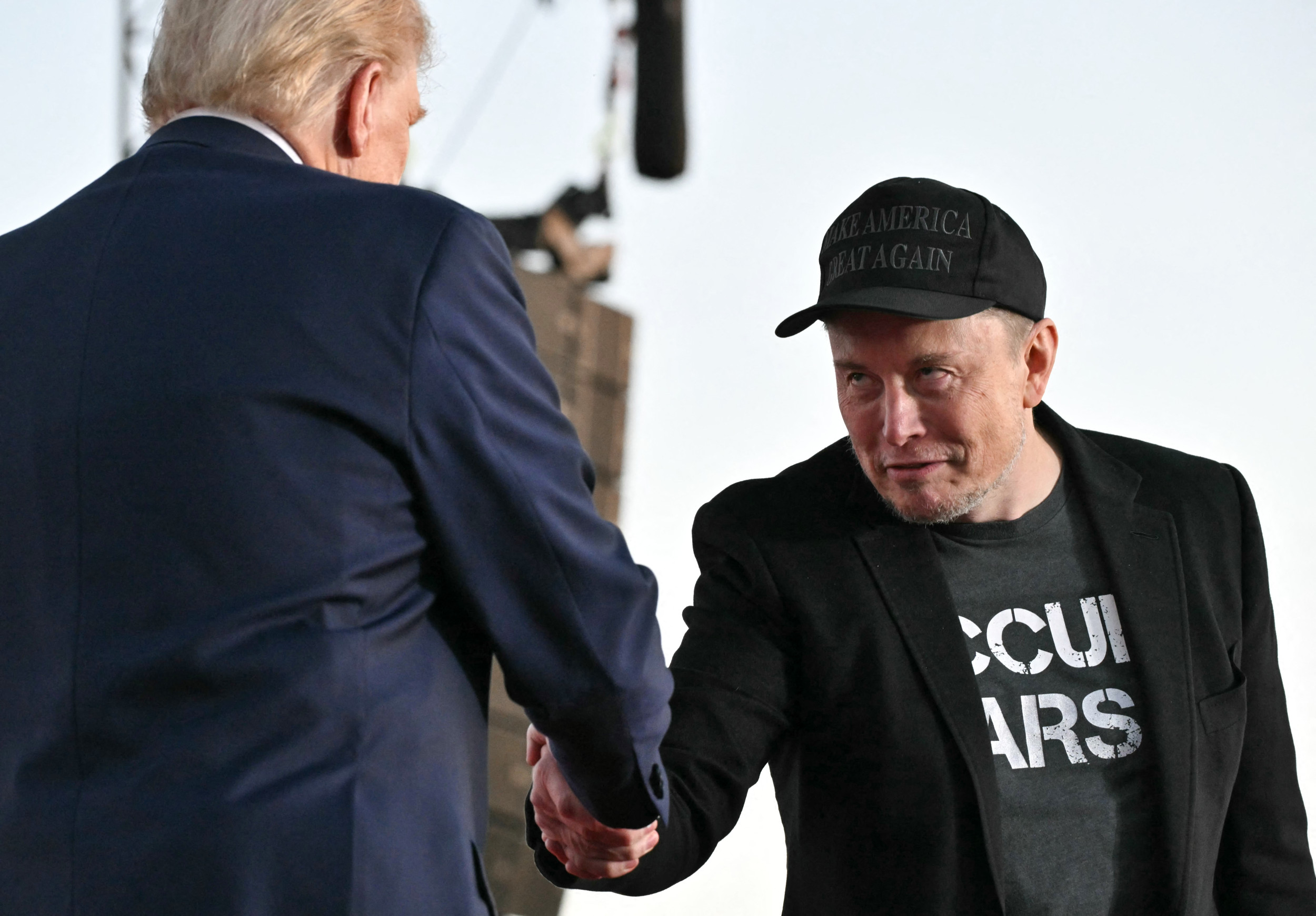At a time when Republicans and Democrats can't even stomach sharing a meal without devolving into arguments about budgets, spending, or Elon Musk, there is at least one issue bringing the two sides together—Taiwan. If the self-governed democratic island was a country, it would be perhaps the U.S. foreign policy community's favorite.
Ask U.S. lawmakers why this is the case and you're likely to get several familiar answers. Taiwan has demonstrated enormous success over decades to become one of Asia's leading democracies. Others point to the island's technological sophistication—Taiwan makes about 90 percent of the world's most advanced computer chips, which powers everything from washing machines to military platforms. And others will inevitably mention China, the big, bad wolf whose president, Xi Jinping, is so interested in acquiring Taiwan that he has tasked the People's Liberation Army (PLA) with attaining the capabilities to do so by 2027.
Beijing's policy toward the island is long-standing—it's an inalienable part of China. U.S. policy, however, is ambiguous—and deliberately so. Based on the Taiwan Relations Act, the three U.S.-China communiqués, and the so-called Six Assurances, successive U.S. administrations have agreed to a set of principles that have maintained stability in the tense region for decades—the U.S. will not support Taiwanese independence; opposes unilateral changes to the status-quo; and will provide the Taiwanese with the means to defend themselves. The U.S. isn't shy about that last point; between 2020 and 2022, Taiwan was the largest purchaser of U.S. defense equipment.

The first Trump administration sold more than $18 billion in arms to Taiwan, ranging from Harpoon missiles to fighter aircraft. Whether Taipei will be as lucky during Trump's second term is an open question. While the fundamentals of Washington's policy are unlikely to change, there will be heated debates within the administration about the extent of U.S. military support to Taiwan, and if the worse-case scenario unfolds, whether the U.S. military should go to war with China to save it.
On one side is Secretary of State Marco Rubio and National Security Adviser Michael Waltz, both of whom were well-known China hawks during their careers in Congress. Rubio, for one, was highly active in authoring pro-Taiwan legislation. One, the Taiwan Protection and National Resilience Act of 2023, which wasn't passed, tasked the executive branch with adopting a strategy that would have restricted the access of oil and gas to the PLA, diminish the PLA's military capacity, and sanction strategic Chinese industries from the U.S. banking system in the event of a Chinese invasion of Taiwan.
Rubio has a valuable ally in Waltz, who traveled to Taiwan as a congressman. The current national security adviser is a proponent of reforming Washington's "strategic ambiguity" concept and replacing it with "strategic clarity," which draws an explicit line in the sand by telling Xi that any Chinese invasion of Taiwan will guarantee a U.S. military response. Such a dramatic policy shift would, in essence, provide Taiwan with a U.S. defense guarantee even stronger than what Washington possesses with Japan, South Korea, and its NATO allies. Waltz has framed this recommendation in the past as a way to assure allies in East Asia that Washington has their back in the face of Chinese assertiveness. But it comes with an immense amount of risk, all but baiting the PLA into moving on Taiwan before the U.S. military has its ducks in a row.
Trump is on the other side of the spectrum. While he has no love for China, he doesn't have much love for Taiwan either. He's wary of taxing the U.S. military with another security commitment at a time when the U.S. military is overextended. Trump may have been willing to open up America's armories to the Taiwanese for a good price during his first stint in the White House, but selling weapons is far less risky than ordering U.S. troops, sailors, and marines to break a Chinese embargo over the island or stationing U.S. ground forces along Taiwan's coastline to beat back a PLA invasion.
Much like the Europeans, Trump looks at the Taiwanese and has little sympathy with their predicament. During an interview with Bloomberg last July, Trump faulted Taipei for stealing America's chip-making business. "Taiwan should pay us for defense," he said. "You know, we're no different than an insurance company. Taiwan doesn't give us anything. Taiwan is 9,500 miles away. It's 68 miles away from China." The subtext—if China moves on Taiwan, the United States would be hard pressed to stop it.
Trump has a point. Any war over Taiwan between China and the United States would be, if not Armageddon, then at least close to it. And that's not an exaggeration. Trillions of dollars in wealth would be lost, tens of thousands of U.S. servicemembers would be killed, the U.S. Navy would lose a good chunk of its fleet—requiring Washington to spend hundreds of billions of dollars over many years to rebuild capacity—and the possibility of a nuclear spiral can't be foreclosed.
Is Taiwan worth all this trouble? The administration will debate it internally. And the arguments could get testy.
Daniel R. DePetris is a fellow at Defense Priorities and a syndicated foreign affairs columnist at the Chicago Tribune.
The views expressed in this article are the writer's own.
Is This Article Trustworthy?
Is This Article Trustworthy?
Newsweek is committed to journalism that is factual and fair
We value your input and encourage you to rate this article.
Newsweek is committed to journalism that is factual and fair
We value your input and encourage you to rate this article.



